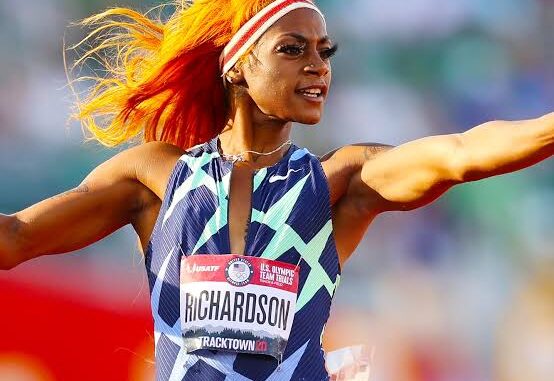
Sha’Carri Richardson, the American sprinter known for her explosive speed and vibrant personality, faced a significant decision in her career following her rise to fame in 2021. Richardson, who gained widespread attention after winning the 100 meters at the U.S. Olympic Trials, was poised to be a star in the Tokyo Olympics. However, her dreams were abruptly dashed when she tested positive for THC, a substance found in cannabis.
The decision to use cannabis stemmed from Richardson’s personal circumstances, including coping with the death of her biological mother. She expressed that using marijuana helped her manage the intense emotions and pressures she faced during that period. This revelation sparked a national conversation about mental health, athlete wellness, and the evolving perceptions of cannabis use.
After the positive test, Richardson was handed a one-month suspension, which ultimately ruled her out of the Olympic competition. This decision was met with a mix of support and criticism. Many advocated for a reevaluation of cannabis policies in sports, arguing that it should not be a banned substance given its legal status in many states and its growing acceptance for medical use. Advocates highlighted the need for compassion and understanding regarding mental health issues, especially in high-pressure environments like competitive athletics.
Richardson’s choice, while controversial, shone a light on the challenges athletes face beyond their physical performance. It raised questions about the balance between discipline and empathy within sports governance. Following the incident, Richardson expressed regret but also resilience, vowing to learn from the experience and come back stronger.
Her decision not only affected her career trajectory but also positioned her as a figure of advocacy for mental health awareness in athletics. Richardson’s candidness about her struggles resonated with many, helping to destigmatize discussions surrounding mental health in sports.
As she looked toward her future, Richardson faced a crossroads: continue to grapple with the consequences of her actions or use her platform to drive change within the sports community. Ultimately, she chose the latter, aiming to redefine her narrative and inspire others to prioritize their mental well-being. Her journey reflects a broader cultural shift in sports, emphasizing that athletes are multifaceted individuals deserving of support and understanding.
Leave a Reply